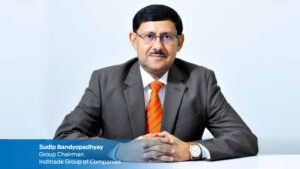As FY2023-24 draws to a close, we stand at a pivotal point in our technological evolution. The past year witnessed a quantum leap in advancements, from the growing pervasiveness of artificial intelligence (AI) to the nascent stages of quantum computing. These innovations hold immense promise for progress, but alongside the excitement lies a critical question: how do we ensure responsible development and deployment that prioritizes societal well-being?
The financial sector, a traditional driver of innovation, presents a microcosm of the ethical tightrope we walk. AI-powered algorithmic trading has transformed markets, while blockchain technology continues to disrupt traditional financial instruments. These advancements have the potential to streamline processes, enhance risk management, and democratize access to financial services. However, ethical considerations loom large. Algorithmic bias can perpetuate inequalities and lead to discriminatory practices if left unchecked. Similarly, the security of blockchain systems and the potential for misuse of cryptocurrencies require ongoing vigilance.
Beyond finance, the ethical landscape of technology extends far and wide. The rise of social media algorithms that curate our online experiences raises concerns about echo chambers and manipulation. Facial recognition technology, while offering security benefits, presents a double-edged sword when it comes to privacy and potential for misuse by governments and corporations. The increasing automation of jobs necessitates a focus on reskilling workforces and ensuring an equitable distribution of the benefits of technological progress.
So, how do we navigate this tightrope? Here are some key considerations for responsible innovation across industries:
Embedding Ethics by Design:
Ethical considerations shouldn’t be an afterthought; they must be woven into the very fabric of technology development. Companies should invest in diverse ethics review boards to identify and mitigate potential biases in algorithms and ensure responsible data collection practices.
- Prioritizing Explainability: The “black box” nature of AI algorithms can breed distrust. Developing explainable AI (XAI) that sheds light on decision-making processes is crucial. This empowers users to understand how algorithms arrive at conclusions and builds trust in these powerful tools.
- Championing Human-Centered Design: Technology should serve humanity, not the other way around. User-centered design principles that prioritize human needs and well-being should guide the development process. This ensures that technology empowers individuals and fosters a more equitable society.
- Investing in Global Collaboration: The ethical implications of technology are not confined by national borders. International collaboration between policymakers, tech companies, and civil society organizations is essential to develop robust ethical frameworks that address the global challenges posed by emerging technologies.
- Upskilling the Workforce: Automation is a double-edged sword. While it increases efficiency, it also displaces jobs. Governments and educational institutions must work together to equip individuals with the digital skills necessary to thrive in the AI-powered economy.
- Focus on Inclusivity: Technological advancements should be designed with inclusivity in mind. This means ensuring access for all, regardless of socioeconomic background or disability. Financial inclusion, particularly, plays a vital role in fostering social mobility and reducing inequalities.
The past year has shown us the immense power of technology to transform our world. However, this power comes with a significant responsibility. By prioritizing ethical considerations, fostering open dialogue, and embracing human-centered design principles, we can ensure that technological advancements benefit all of society and pave the way for a more just, equitable, and prosperous future.
The road ahead will require ongoing collaboration and proactive measures. Leaders across industries must champion these principles and work together to ensure that the incredible innovations of FY2023-24 become a force for good that propels us towards a brighter future, not a path fraught with unforeseen ethical dilemmas.
This approach will not only safeguard society from the potential pitfalls of technological advancement, but also unlock its full potential to create a more prosperous and sustainable future for all.
FY2023-24 has been a whirlwind of innovation, but the true test lies ahead. Can we harness the immense power of technology to create a better future for all? The answer hinges on our ability to prioritize ethics and embrace a human-centered approach to technological development. By fostering open dialogue, investing in robust frameworks, and empowering individuals, we can ensure that technological advancements become a force for good, propelling us towards a more just, equitable, and sustainable future. The alternative – a future rife with ethical dilemmas and unintended consequences – is a path we cannot afford to tread.





















